Introduction: Building Confident Learners Beyond the Classroom
In today’s fast-paced and competitive world, academic success alone does not guarantee a child’s overall development. True education extends beyond textbooks and exams. It is about nurturing well-rounded individuals who are confident, expressive, and socially responsible. One of the most effective ways to achieve this is through extracurricular activities – a crucial part of the holistic education philosophy followed at Millennium World School (MWS).
From arts and music to drama and sports, MWS encourages every learner to discover and develop their unique talents. These experiences help students gain self-confidence, teamwork skills, creativity, and emotional resilience qualities that shape them into future-ready global citizens.
In this blog, let’s explore how extracurricular activities shape a child’s confidence and how the holistic learning environment at MWS empowers students to shine on and off the stage.
The Link between Extracurricular Activities and Confidence
Confidence is not an innate trait; it is developed over time through positive experiences, supportive guidance, and the opportunity to try new things. Extracurricular activities offer precisely this.
Here’s how they build a strong foundation of self-confidence in children:
- Encouraging Risk-Taking: Trying a new sport, joining the school choir, or performing in a play teaches children to step outside their comfort zones. Each successful attempt boosts self-belief.
- Developing Skills: As students see themselves improving through consistent practice, they gain a sense of achievement that strengthens their self-esteem.
- Recognition and Achievement: Winning a medal or simply being appreciated for effort can be a powerful confidence booster.
- Collaboration and Teamwork: Working with peers fosters social skills, empathy, and the ability to trust oneself and others.
At Millennium World School, these benefits are integrated into daily learning through a well-designed extracurricular framework.
The Holistic Approach at MWS: Where Every Talent Matters
Millennium World School stands out for its commitment to holistic education, ensuring that every student’s intellectual, physical, emotional, and creative abilities are nurtured. Instead of treating extracurriculars as optional, MWS treats them as essential building blocks of student growth.
This approach aligns with the belief that true confidence comes from all-round development. Whether a child is artistically inclined, athletically gifted, or curious about performing arts, MWS offers opportunities and expert guidance to help them flourish.
Let’s take a closer look at the key domains where MWS shapes confident, capable learners.
Nurturing Creativity through Arts
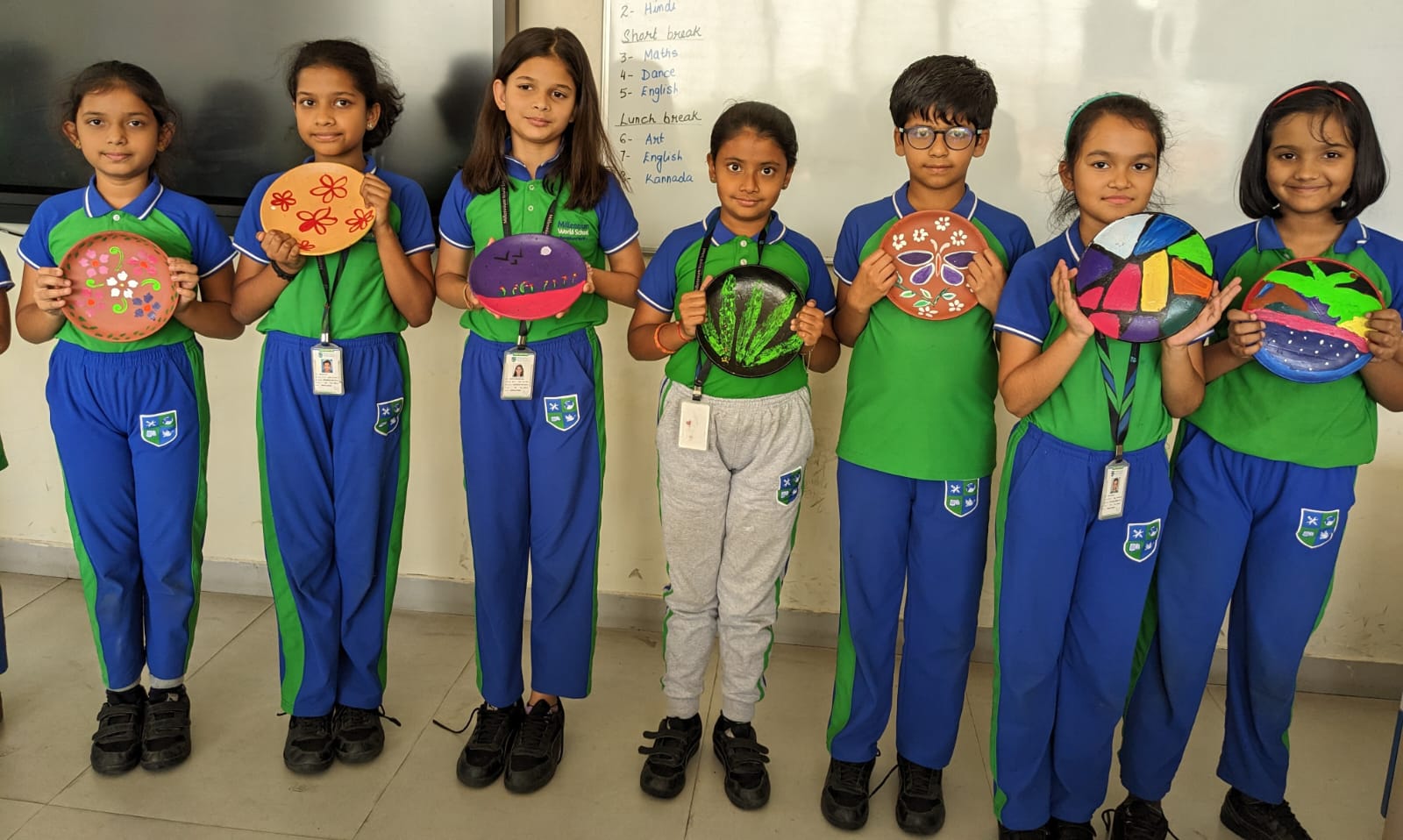


Art is more than just painting or drawing – it is a powerful tool of self-expression. At MWS, visual arts programs encourage students to communicate their emotions, ideas, and perspectives creatively.
How arts build confidence at MWS:
- Self-Expression without Judgment: Students are encouraged to experiment with different mediums like painting, sculpture, and craft, helping them overcome the fear of failure.
- Showcasing Talent: Regular art exhibitions and interschool competitions give students the platform to present their work proudly, boosting their sense of accomplishment.
- Personal Growth: Learning to receive constructive feedback in art builds resilience, adaptability, and the ability to embrace improvement.
By making art a joyful and integral part of the school day, MWS helps students feel valued for their individuality an essential step toward lasting self-confidence.
Building Team Spirit and Resilience through Sports
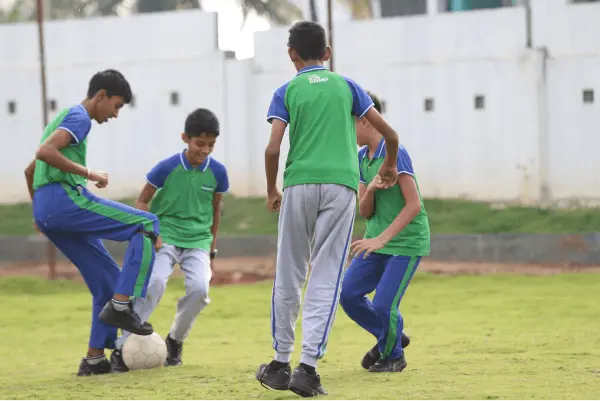
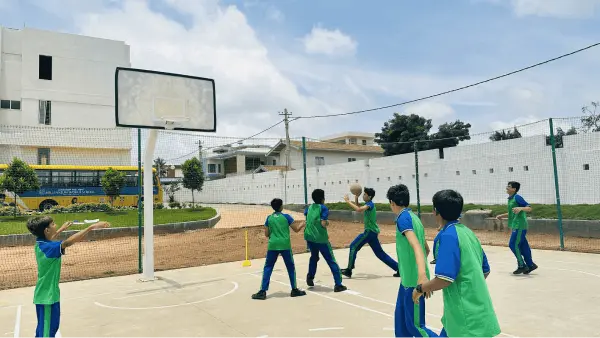
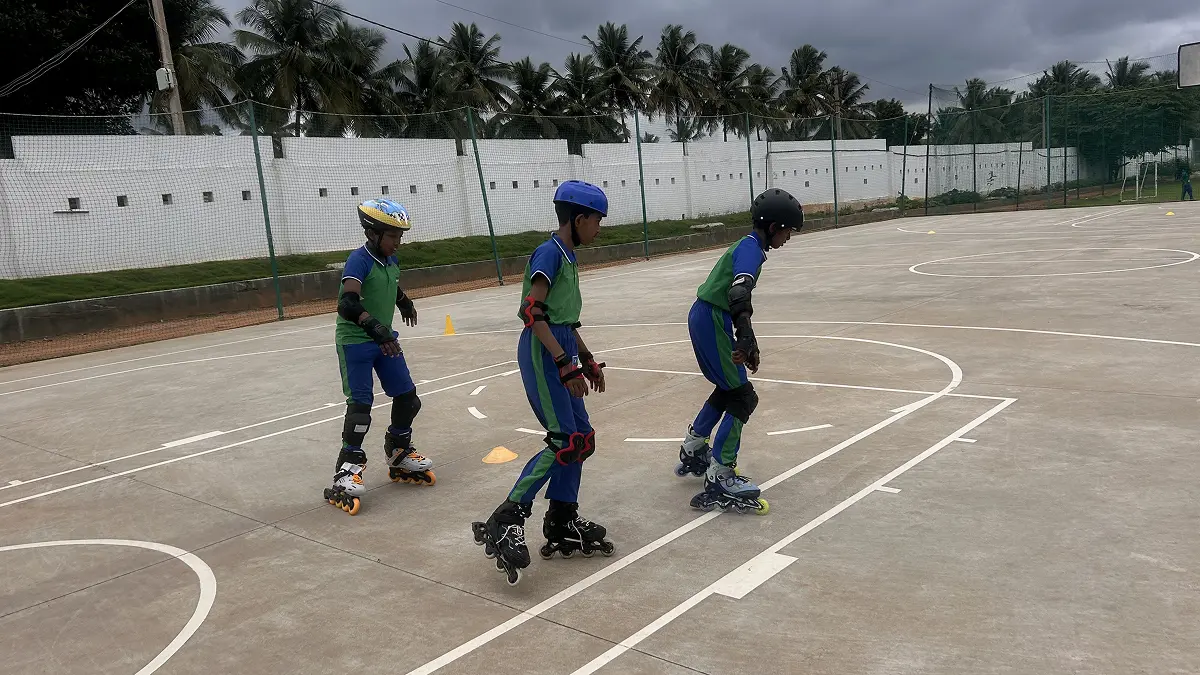
Our dedicated sports training at MWS, Sports are one of the most impactful ways to shape confidence and discipline in children. MWS offers a wide range of sports from team games like football, cricket, and basketball to individual pursuits like athletics, swimming, and yoga.
How sports boost confidence at MWS:
- Learning to Handle Wins and Losses: Experiencing both victory and defeat teaches emotional balance, perseverance, and humility.
- Discipline and Goal Setting: Regular training builds dedication, time management, and the confidence that comes from achieving personal goals.
- Collaboration and Leadership: Team sports develop communication, trust, and leadership qualities key pillars of confidence in social settings.
With professional coaches, state-of-the-art facilities, and a strong emphasis on sportsmanship, MWS ensures students grow into confident individuals who value effort as much as outcomes.
Developing Emotional Intelligence through Music
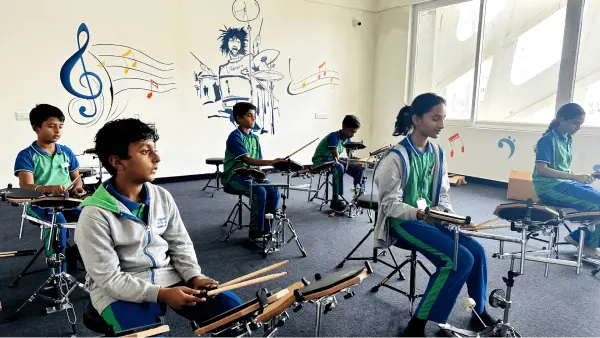
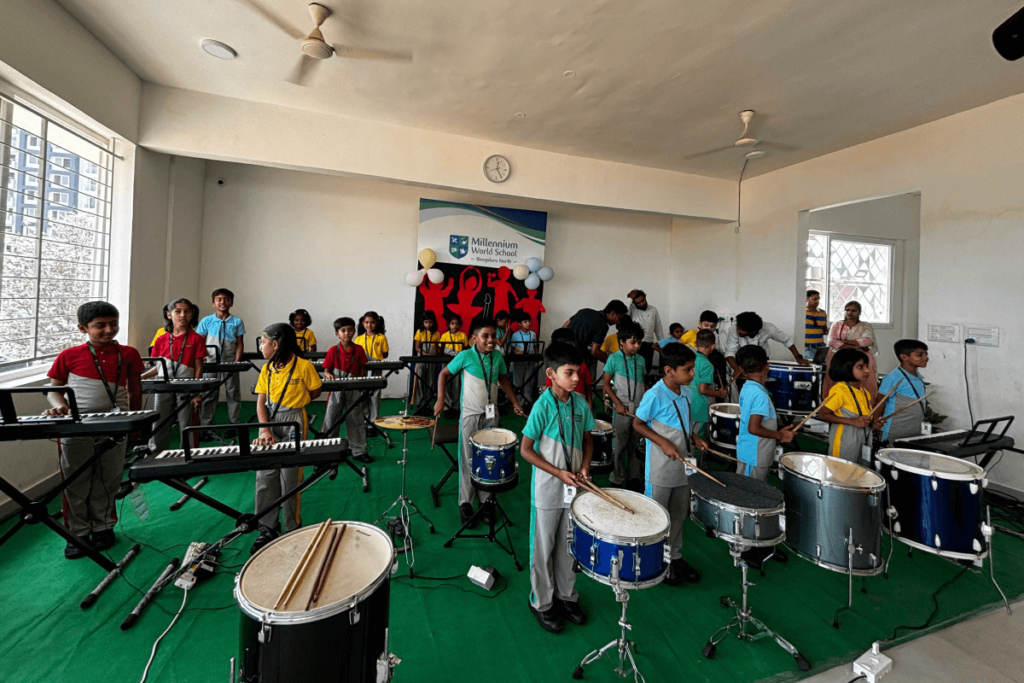
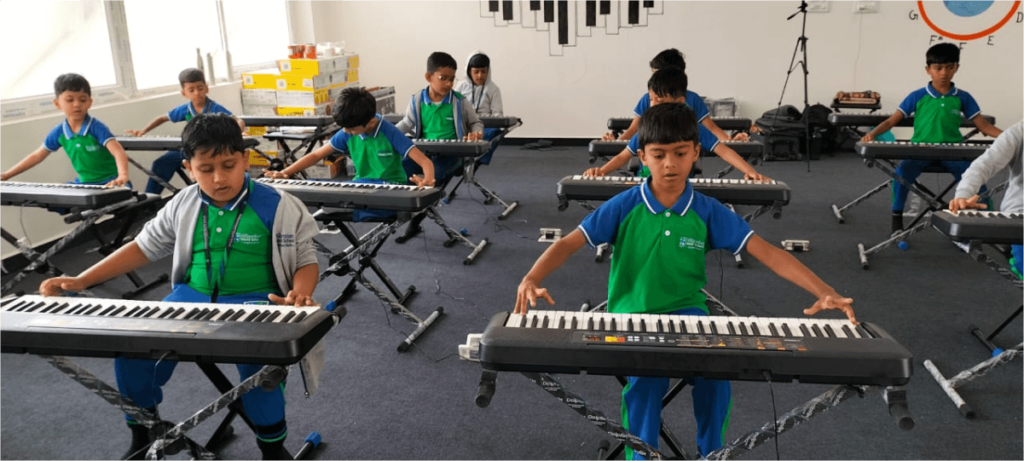
Music teaches patience, focus, and emotional expression. Through our vibrant music education at MWS, students learn to collaborate in choirs and bands, enhancing their social skills and sense of belonging.
Performing on stage in front of an audience builds courage, while mastering an instrument fosters a deep sense of achievement.
How music shapes confidence at MWS:
- Building Concentration and Patience: Learning an instrument or practicing vocal music teaches discipline and persistence, which translate into confidence in other areas.
- Public Performances: School concerts, assemblies, and competitions offer opportunities to perform on stage, helping students overcome stage fright.
- Sense of Belonging: Being part of a band, choir, or orchestra instills teamwork and the security of being supported by peers.
Through music, MWS instills a quiet, inner confidence that empowers children to express themselves authentically.
Cultivating Self-Belief through Drama and Performing Arts

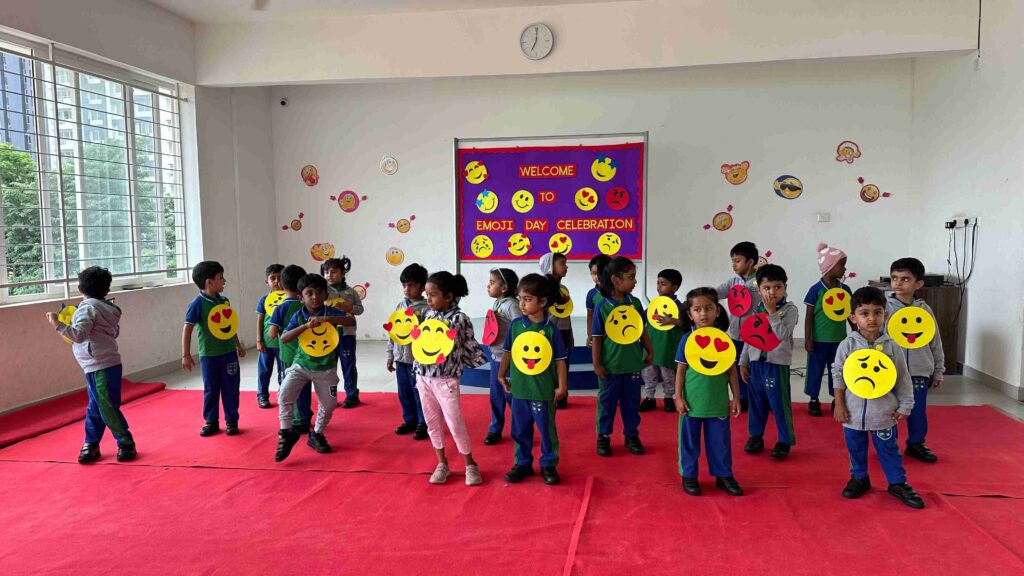
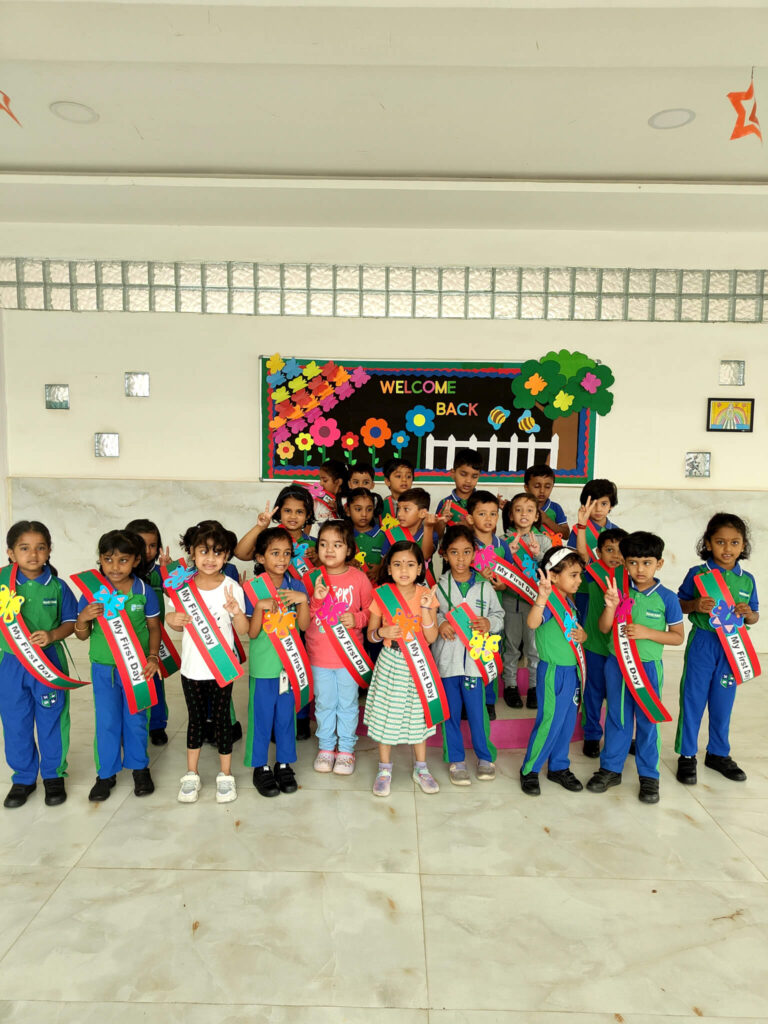
Drama and performing arts have a transformative impact on a child’s personality. At MWS, students are encouraged to explore theatre, public speaking, declamation, mime, and dance from an early age.
How drama boosts confidence at MWS:
- Overcoming Stage Fear: Repeated exposure to audiences helps students conquer nervousness and perform with assurance.
- Enhancing Communication Skills: Acting improves voice modulation, body language, and clarity of expression.
- Empathy and Perspective: Playing different characters broadens emotional understanding, making children more socially confident.
Annual cultural fests, stage productions, and drama clubs ensure every student gets a chance to shine in the spotlight.
The MWS Environment: A Safe Space to Explore and Grow
One of the strongest reasons extracurricular succeed at Millennium World School is its supportive learning environment. Confidence blooms only when children feel safe to explore, make mistakes, and try again without judgment.
At MWS:
- Every child is encouraged to participate, regardless of skill level.
- Teachers and mentors provide constructive feedback and celebrate effort as much as achievement.
- Peer encouragement is actively cultivated, creating a culture of positivity and mutual respect.
This nurturing atmosphere ensures students are not afraid of failure because they know every attempt is valued as part of the learning journey.
Long-Term Impact: Confident, Well-Rounded Future Leaders
The benefits of this holistic approach extend well beyond school. Students who actively participate in extracurricular activities at MWS often develop:
- Higher Self-Esteem: They believe in their abilities and trust themselves to tackle challenges.
- Better Social Skills: Teamwork experiences make them empathetic, cooperative, and effective communicators.
- Leadership Qualities: Exposure to varied responsibilities prepares them for leadership roles in the future.
- Stronger Academic Performance: Confident children are more engaged in academics, leading to overall better outcomes.
In essence, extracurriculars don’t just create performers or athletes they build resilient, confident human beings.
Conclusion: Confidence That Lasts a Lifetime
At Millennium World School, extracurricular activities are not just add-ons they are at the heart of student development. By giving children the opportunity to explore arts, sports, music, and drama in a safe and encouraging environment, MWS helps them build the confidence to embrace challenges, lead with empathy, and express their true selves.
When children are empowered to discover their strengths beyond the classroom, they don’t just succeed in school—they thrive in life. And that is the true purpose of education.


